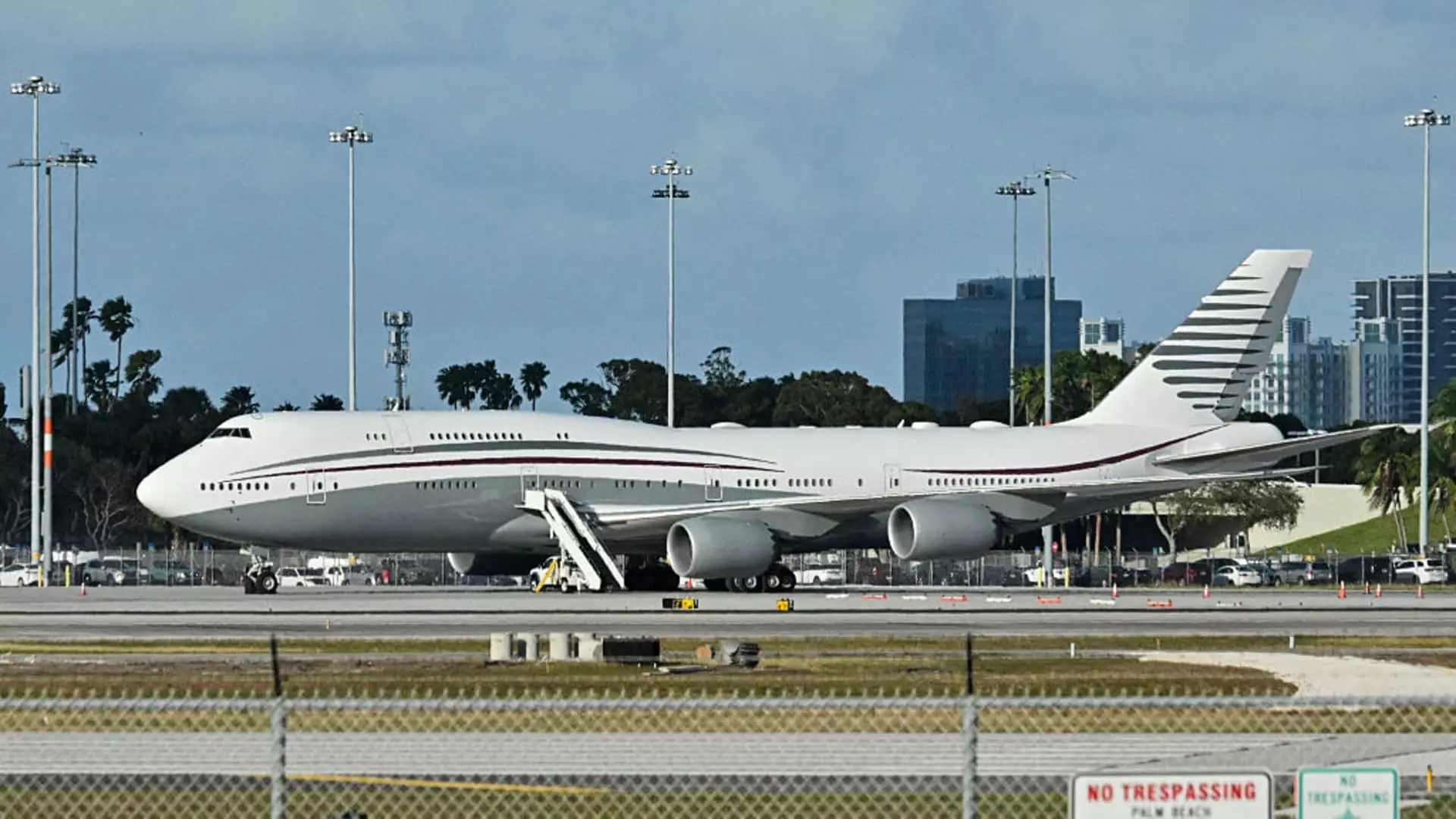In an unprecedented twist to international diplomacy, the Trump administration has welcomed a Boeing 747 gifted by Qatar. The Pentagon publicly confirmed this development, stirring a whirlwind of opinions and debates across the political spectrum. While some tout this as a strategic boon, others perceive it as a troubling shift in the ethical landscape of American politics. The idea that a foreign entity could influence the presidency through such gestures is not just alarming; it raises questions about the integrity of governance itself.
Political Implications and Ethical Concerns
Defense Secretary Pete Hegseth’s acceptance of the luxurious Boeing jet was couched in procedural clarity, adhering to federal guidelines. However, underneath this bureaucratic veneer lies a cauldron of ethical dilemmas. Critics, primarily from the Democratic party, have decried the gift as a form of soft bribery, akin to a political quid pro quo. Senate Minority Leader Chuck Schumer exemplifies this sentiment, characterizing the transaction as “a stain on the office of the presidency.” Such assertions are not simply partisan attacks but resonate with a larger concern regarding foreign influence over American leadership.
In an era where national integrity is paramount, the very act of accepting a gift from a foreign government elicits arguments that it may border on unethical, if not illegal. Critics stress that the implications extend beyond mere optics; they suggest a potential opening for foreign entities to sway the American political landscape through material gifts. Such a precedent could lead to a slippery slope, raising questions about the sanctity of American sovereignty.
Operational Challenges with Qatar’s Jet
On a practical level, there remain concerns about the Boeing 747’s actual utility as Air Force One. Originally valued at about $400 million, experts warn that converting this jet into a fully operational presidential aircraft could burgeon to over $1 billion and involve extensive adjustments that may take years to finalize. With the Trump presidency potentially hanging in the balance, the ambition to attain a rapid solution clashes with logistical realities. Trump’s frustration with Boeing’s delays in constructing two new Air Force Ones is palpable, and this gift appears to be an attempted stopgap. However, can the nation’s leader truly patch a critical national security apparatus with a foreign jet?
The situation is compounded by skepticism surrounding Boeing’s performance and accountability. The company’s track record, particularly following the controversial 737 MAX incidents, casts a long shadow over its promise of efficiency and safety. It may seem almost reckless to insert a 13-year-old aircraft into the chains of command without thorough scrutiny—one would expect nothing less from the institution charged with safeguarding the nation’s future.
Division on the Political Landscape
The juxtaposition of support and opposition for this jet acquisition elucidates deep divisions within the political sphere. Some Republicans join Democrats in expressing unease over implications for national security, while Trump steadfastly defends the decision. By framing the acceptance of this gift as pragmatic, he hopes to divert attention from the ethical questions at play. However, simplistic justifications will not assuage the concerns of those who see this development as a potential breach of constitutional decorum.
The debate rages on as Trump dismissively retorts that rejecting a ‘free’ airplane would be “stupid.” But such rhetoric belittles broader ethical discussions that are vital to maintaining public trust. Allowing personal interest to dictate national policy is precisely the slippery slope warned against by scholars and critics alike. While the president’s utilitarian views resonate with certain constituents, the broader implications demand a vigilant public discourse that is too often marginalized in today’s polarized climate.
A Call for Integrity and Transparency
What remains clear is the urgent need for integrity and transparency in government dealings. The Senate’s proposed legislation to prohibit foreign aircraft usage as Air Force One is a timely reflection of this sentiment. Although it may serve as a political maneuver for Schumer, it embodies an essential dialogue regarding America’s values and their safeguarding. The concerns of both parties reflect a shared understanding that when the textbook of democracy involves unaccountable influence, the whole system is put at risk.
As the rhetoric continues to swirl around this royal jet, it would be wise for all entities involved to recognize the gravity of the situation. Striking the right balance between pragmatism and ethical governance is crucial for the sustainability of national interests; otherwise, we find ourselves entrenched in a nebulous terrain where accountability becomes a relic of the past.

Leave a Reply